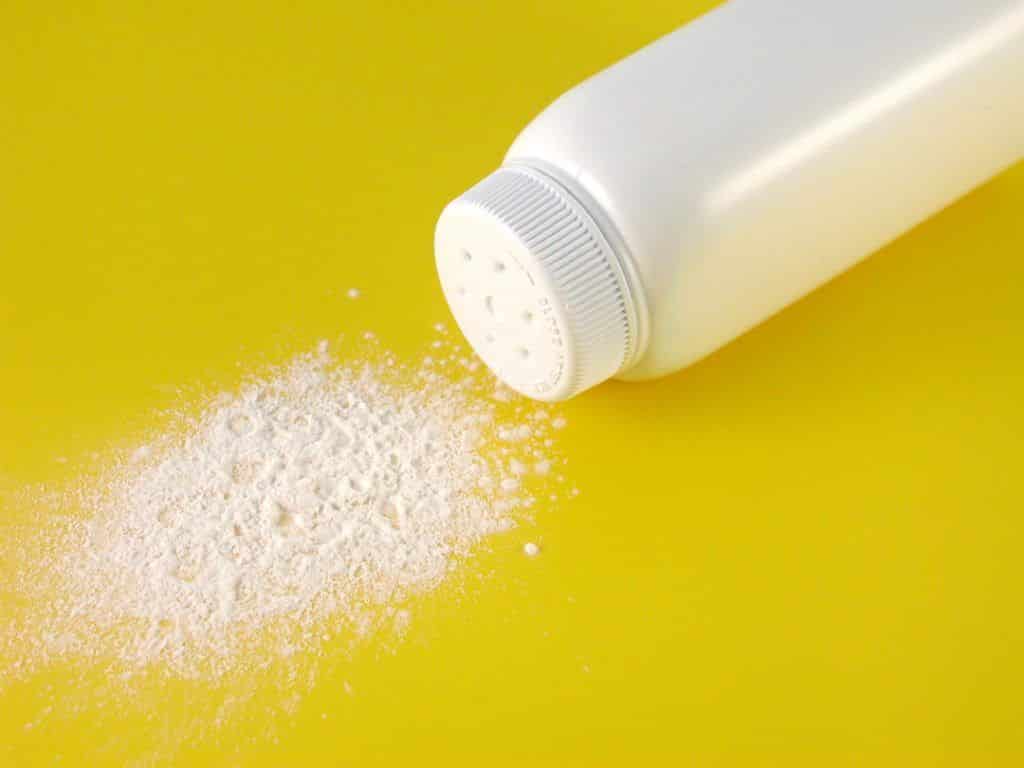Recent Settlements Highlight Serious Concern Over Link to Ovarian Cancer
- Johnson & Johnson ordered to pay $417 million in Los Angeles case in August of 2017
- In 2016 and 2017 other settlements totaled over $300 million; including a $110 million settlement in May of 2017

Talcum powder, found in baby powder, facial powders, and dry shampoos, is a common household product. After being used for generations without concern, studies that began as early as the 1970s have now revealed that there could be a substantial link between use of talcum powder and the development of ovarian cancer in women.
If you have been diagnosed with ovarian cancer and used Talcum Powder regularly, then you should talk to one of our attorneys to explore whether or not you might have a legal claim.
Talcum powder is made of talc, a soft mineral, which is extremely efficient at absorbing moisture. It is often used to prevent chafing and skin irritation. Studies have been conducted recently that show a link between the use of talcum powder around the genitals and an increased risk of ovarian cancer. In fact, a 2013 study by Brigham and Women’s Hospital analyzed data from nearly 2,000 cases and discovered that there was a 20% to 30% increased risk of ovarian cancer in women who used talcum powder.
What Products Can Talcum Powder Be Found In?
Talcum powder is commonly found in:
- Baby powder
- Cosmetics
- Waterless shampoo
- Foot powders
If you have been diagnosed with ovarian cancer and believe that your cancer could be linked to the use of talcum powder, contact an attorney at Hughes & Coleman as soon as possible. Our team will discuss the specifics of your case and determine whether you have a claim.
Johnson & Johnson is the defendant in thousands of lawsuits alleging a connection between talcum powder and ovarian cancer. These cases allege that Johnson & Johnson knew about the risks the risks associated with talcum powder but failed to warn customers.
In February of 2016, a talcum powder case resulted in a $72 million jury award to the family of a woman who developed ovarian cancer. Another plaintiff was awarded $55 million in a jury trial alleging that talcum powder caused her ovarian cancer.
If you have been diagnosed with ovarian cancer following regular talcum powder usage, you may be hesitant to hire an attorney because you don’t think you can pay the attorney’s fees. If financial worries are keeping you from contacting an attorney, don’t wait a minute longer to get the representation you deserve. The attorneys at Hughes & Coleman work on a contingency basis when representing clients for talcum powder lawsuits. This means that your attorney will only get paid if he or she wins your case. If you don’t win, you don’t owe your attorney anything. There are no expensive hourly fees, down payments, or financial risks.
Let the Attorneys at Hughes & Coleman Give You the Representation You Deserve
If you have been diagnosed with ovarian cancer, you shouldn’t be worrying about fighting a case against a corporate giant. Your main concern should be treatment and recovery. Dealing with cancer is stressful enough. Don’t try to fight your case alone. These cases can be very complicated and require massive amounts of paperwork. Deadlines must be met and complicated procedural rules have to be followed. If you miss a step in the process, even a small one, your case may be compromised.
Your chances of winning a talcum powder case depend greatly on your individual circumstances. The best way to determine whether or not you have a case against a manufacturer of talcum powder is to consult a lawyer. If you think you have a case, call or fill out a case evaluation form today. This service is free, and a member of our team will contact you at a time that works for your schedule to discuss the specifics of your case.
Cases likely to be referred.


